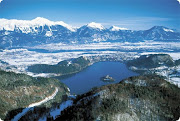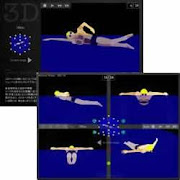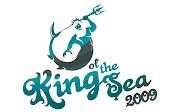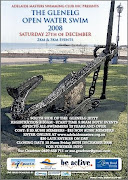 Courtesy of WOWSA, Huntington Beach, California.
Courtesy of WOWSA, Huntington Beach, California. The Sport Industry Group, creator of the Sport Industry Awards, ran an article about FINA, the world's governing body of aquatics, that is considering recommendations to adopt two sets of world records for pool swimming: one for times set using the performance-enhancing apparel and one without.
As Sport Industry Group reported, the FINA Coaches Commission recommended the creation of a "World Textile Mark" which would honor swimmers who beat world records that stood prior to January 2008.
The world of open water swimming is sheltered from this debate on world records. World open water swimming records are not kept by FINA simply because of the dynamic nature of open water venues. Competitions can differ in actual length, water conditions, water temperature, weather conditions, the presence of jellyfish, the position and number of feeding pontoons, the number of swimmers in the race, the position and number of turn buoys, the shape of the course, use or non-use of a lead boat or kayak, currents, tides, winds and surface chop. All of these variables have a direct impact on the overall times of the swimmers.
To demonstrate this point, we reviewed the men's 10K winning times at each of the races on the 2009 FINA 10KM Marathon Swimming World Cup circuit. The winning times ranged from 1 hour and 34 minutes to 2 hours and 5 minutes, a remarkable 31-minute time differential:
Setubal (Portugal): Thomas Lurz, 1:34:16
Dubai (UAE): Thomas Lurz, 1:44:53
New York (USA): Thomas Lurz, 1:47:41
Sharjah (UAE): Trent Grimsey, 1:48:17
Lake Annecy (France): Thomas Lurz, 1:52:08
Chun An (China): Thomas Lurz, 1:55:10
Lac St-Jean (Canada): Alexander Studzinski, 1:57:25
Copenhagen (Denmark): Thomas Lurz, 1:57.40
Hong Kong: Thomas Lurz, 1:58:22
Varna (Bulgaria): Thomas Lurz GER 2:01:31
Shantou (China): Thomas Lurz, 2:03:15
Santos (Brazil): Simone Ercoli, 2:05:44
Even when we reviewed the winning times on the same course year-to-year (2008 vs. 2009), there are still significant differences:
Hong Kong: 1:46:1 in 2008 vs. 1:58.2 in 2009
Shantou: 2:06:5 in 2008 vs. 2:03.1 in 2009
Lac St-Jean: 2:04:1 in 2008 vs. 1:57.2 in 2009
Setubal: 1:52:4 in 2008 vs. 1:34:16 in 2009
Dubai: 1:48:5 in 2008 vs. 1:44:5 in 2009
Santos: 1:58:42 in 2008 vs. 2:05:44 in 2009
So rather than time or records, finishing first is the goal of elite open water swimmers. After his 2009 world championship victory in Rome, Thomas Lurz answered a question from the media about why he swam off-course, "My goal was to finish first, not to be worried how far or where I swam."
Although FINA does not recognize world records for its 5K, 10K, 25K and Grand Prix events (that can range up to 88K / 54 miles), there are some open water swimming organizations that maintain world records for their marathon swims. The English Channel and Catalina Channel fastest times are maintained and touted as world records for those particular waterways.
Another interesting difference between the pool world is open water swimming's more expansive definition of records. Records are recognized for not only the fastest swimmers, but also the oldest, the youngest, the most times accomplished, the earliest completed in a season, the latest completed in a season, the longest time in water and date of the first crossing.
And while records are great, the self-satisfaction and sense of achievement for open water swimmers can be profound for those of any age or ability. For all those open water swimmers who stuggle to finish a 1-mile swim or those marathon swimmers who literally crawl onto shore, making it - finishing a swim - crossing the finish line - is truly a reward in itself.
Different viewpoints for different folks in different swimming disciplines. It's all good.
Copyright © 2009 by World Open Water Swimming Association




















2 comments:
Great article!!!
A very interesting article, specially to all of those who don´t know well this sport. Congratulations!
Post a Comment